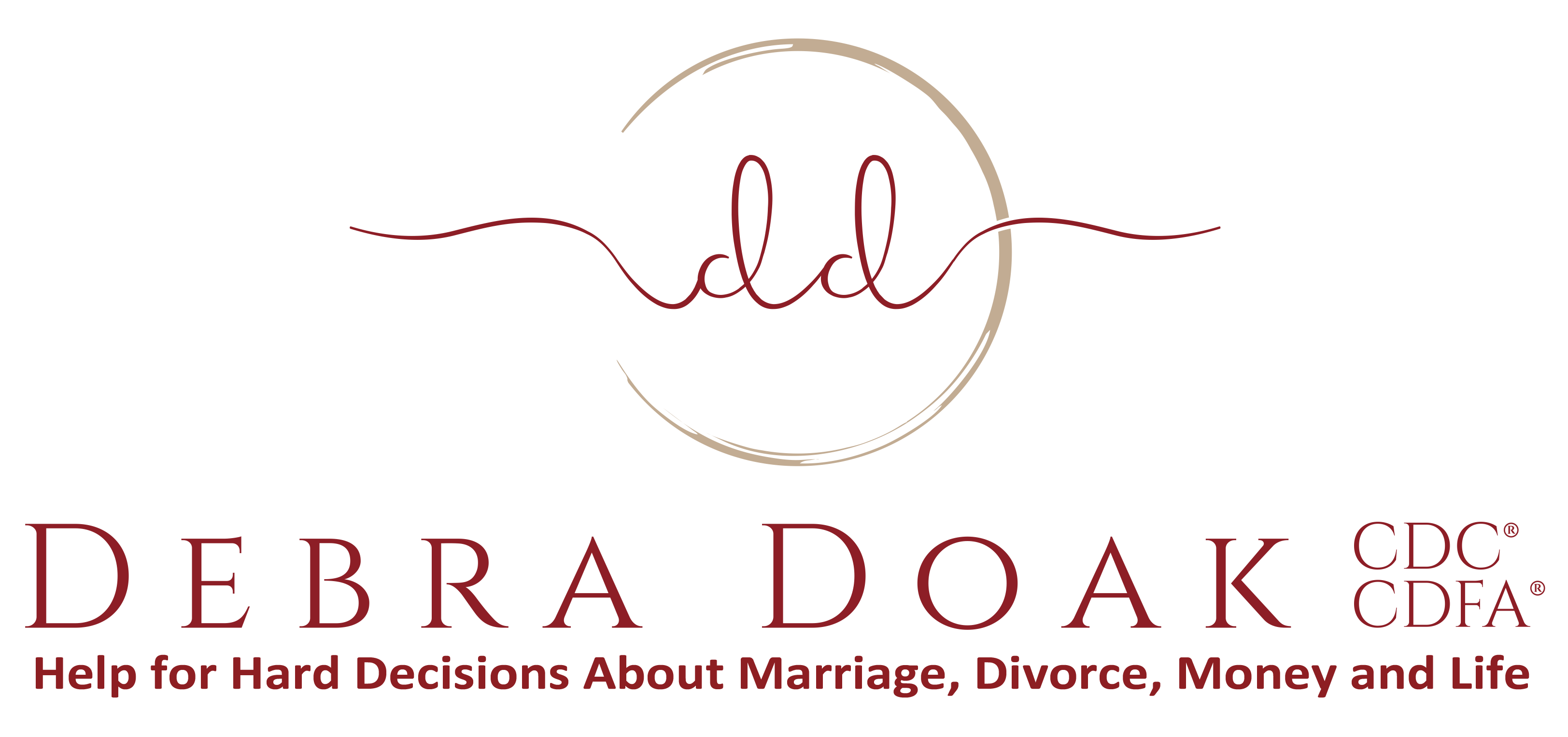
3 Questions to Help You Decide If Betrayal a Dealbreaker for You
Infidelity, porn, emotional affairs, addictions, and financial lies – these are the things that crush trust in any marriage or relationship. But is betrayal a dealbreaker?
In many, many conversations with betrayed women, they tell me the same thing over and over – “If you had told me I would ever consider staying married to a cheater/liar, I wouldn’t have believed you.” The truth is, some things just can’t be understood until we experience them.
Most of my clients are the most loving, gracious, forgiving women you could ever meet and they want, more than anything, to believe in their partners again. But they’re also hurt to their core and aren’t sure they’ll really ever be able to trust.
So, that’s the dilemma…is betrayal a dealbreaker for you? It’s a big, hairy, complicated question. Try working your way through these three questions to help decide if it’s a dealbreaker for you.
Dealbreaker Question 1: Did You Just Recently Find Out?
Clinicians call this “discovery” and define it as an intensely traumatic experience. You’re shell shocked, heartbroken, angry, sad, and more – and all at once. All you want is for the pain to end. Making a quick decision typical results in either premature forgiveness or immediate divorce, neither of which will lead to long-term recovery for you.
Premature forgiveness can feel like you put yourself last again – that what you need in the relationship isn’t important. And ending the relationship immediately may seem like an obvious way to stop the bleeding, but there is continued pain and required healing whether you choose to stay or go.
Divorce is a messy process and will impact your children, your finances, and your well-being for a long time to come. And the healing of that hurt will need to happen regardless of your decision. Carrying that around with you will only keep you prisoner or, more likely, cause you to make a poor choice for your next relationship partner.
If your discovery is recent, please find the right support in a therapist or group and give yourself 30-60 days for the trauma to subside. I recommend finding someone certified in the Trauma Model so you can be assured you will be treated with care and safety. Both Betrayal Trauma Recovery and APSATS have resources to help. Or check out my colleague Savannah’s coaching programs over at the Modern Mr. and Mrs.
Once you have some personal support, you will be thinking more clearly and will have more information from your partner about their commitment to repairing what they broke.
Sidenote: If you have reason to believe that your partner is not all in on repairing the relationship and might have one foot out the door, there are some steps you may want to take to protect yourself financially while you wait. Please schedule a consult with me and let’s talk.
Dealbreaker Question 2: Is My Partner Repentant?
I know they’re sorry. They’ve told you over and over again. But are they sorry they got caught or are they brutally broken knowing how much hurt they caused you? This distinction is critical. I’ve watched enough couples and coached enough women to know the difference between true “sorry” and hurry up and get over it “sorry”.
When a relationship is broken, it’s because one person has hurt the other. In order to mend that or be reconciled, the offender must show humility, ask for forgiveness and demonstrate repentance.
The great evangelist Billy Graham gives us some spiritual insight into what true repentance is. “First, there is conviction. You must know what is right before you can know what is wrong. The second element of true repentance is contrition. It is a sincere regret over past sins and an earnest desire to walk in a new path of righteousness. Third, repentance carries with it the idea of changing–changing your mind, changing your attitude, changing your ways.”
Repentance, therefore, is a change of mind, heart, and behavior and that is what you should be looking for if you are thinking about reconciling.
I want you to understand that your partner did something to hurt you ON PURPOSE. A relational crime, if you will. You have been the victim of your partner’s choices and they alone are responsible for cleaning up the mess – for working to ensure that full restitution has been made so that you can be made whole again.
You can read more about what that looks like here and here.
Dealbreaker Question 3: Can You Let Go of What Was and Start Again?
I hear a lot of rhetoric out there that your relationship can be “better and stronger than ever”.
And I call BS. The seal has been broken. The innocence is gone. That initial, complete, naive kind of trust does not come with a refill. Your relationship could end up healthier, but it will be different. It will not be a stronger version of what you used to have – that relationship was thrown into the garbage dump the moment your partner made their decision. But you may be able to build a new one from scratch.
You are essentially re-negotiating your marriage contract and you are doing it as a new person. Perhaps in the past, you’re weren’t one to speak up assertively when something felt off or bothered you. Those days are long gone. Maybe you weren’t comfortable asking directly for what you need and expecting to get it. Well, now you do. And after recovery, boundaries are as natural to you as breathing. You know exactly what you are and aren’t willing to accept and aren’t open to negotiation about how your partner treats you.
Hopefully, your partner has grown significantly too and the two of you will be enjoying a level of intimacy, sharing, and honesty that was previously missing. It won’t be what it was. Not giddy new love. Not be the hot, can’t get enough of each other love. It won’t look like a fairy tale. But can be a mature, respectful, deeper connection that will be healthier and more satisfying for both of you.
So Is It a Dealbreaker For You?
Not everyone is able to restore or rebuild a relationship after betrayal and if that is you, then you should feel ZERO guilt about that. Don’t let what Tracy Schorn (aka The Chump Lady) calls the Reconciliation Industrial Complex shame you into thinking there is something wrong with you for choosing not to stay with a cheater. You know your own heart best and if this is a dealbreaker for you, then it is. End of sentence.
If you decide that betrayal isn’t necessarily a dealbreaker for you and you’re ready to do the hard work to build a new, healthier relationship with your partner, then please, please, please know that couples counseling is NOT appropriate until your partner has done the work of demonstrating remorse and repentance. It will be impossible for you to heal from the trauma of betrayal if you are sitting in a counselor’s office listening to all your partner’s complaints about how you contributed to the relationship problems. They fix what they broke first, then you work on the relationship together.
The reason I call my coaching program Stay, Wait or Go is that I believe Wait can be the right answer in many cases. Wait until you get some support for your trauma. Wait until you see how your partner responds. Wait until you begin to heal. Wait until you know what you want to do. Wait until you have an exit strategy in place.
Need More Help?
I get it. It’s one of the hardest decisions you’ll ever have to make. And you’re trying to make it at a time you may be least emotionally prepared. This path is new for you, but it’s not new for me – I’ve helped many women decide if betrayal is a dealbreaker for them and I can help you too.
Check the Work with Me page for online group coaching opportunites where I work with small groups of women to work through these kinds of hard life situations.
Or schedule a complimentary consultation and we’ll have a no-pressure chat. I can help you explore the kind of support that’s right for you. Perhaps my one-on-one Stay, Wait, Go coaching would be a good fit for you or maybe you need something else. Let’s talk and figure it out – together.
Wishing you strength and wisdom,




